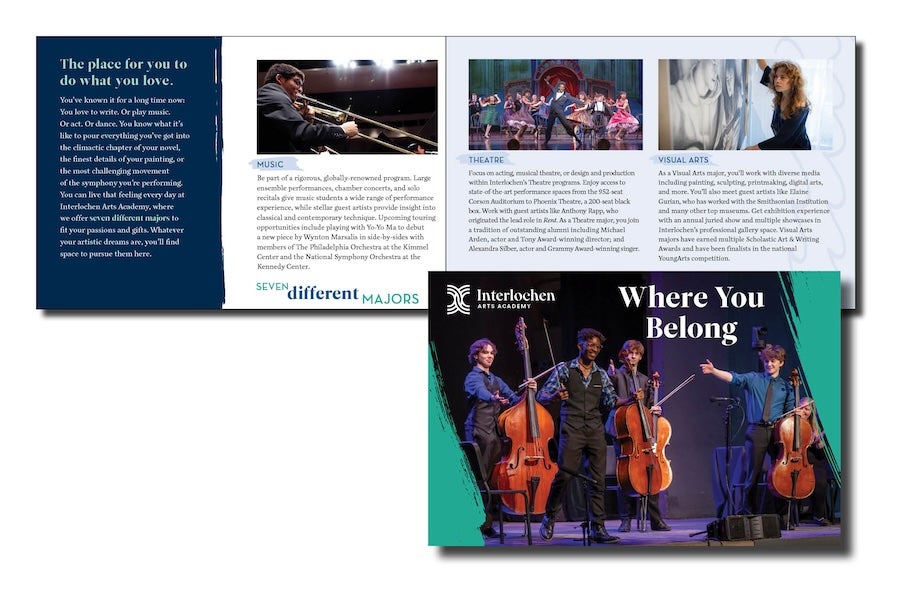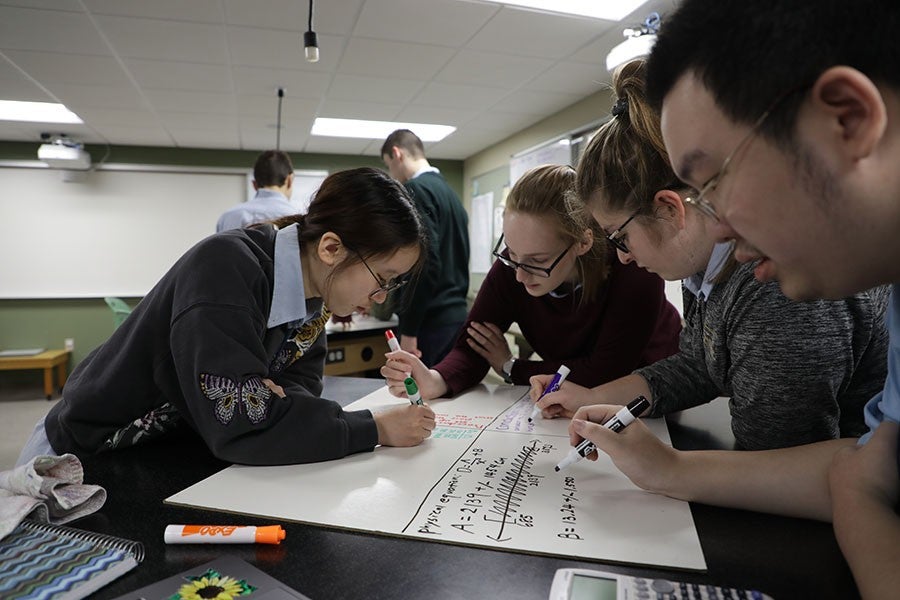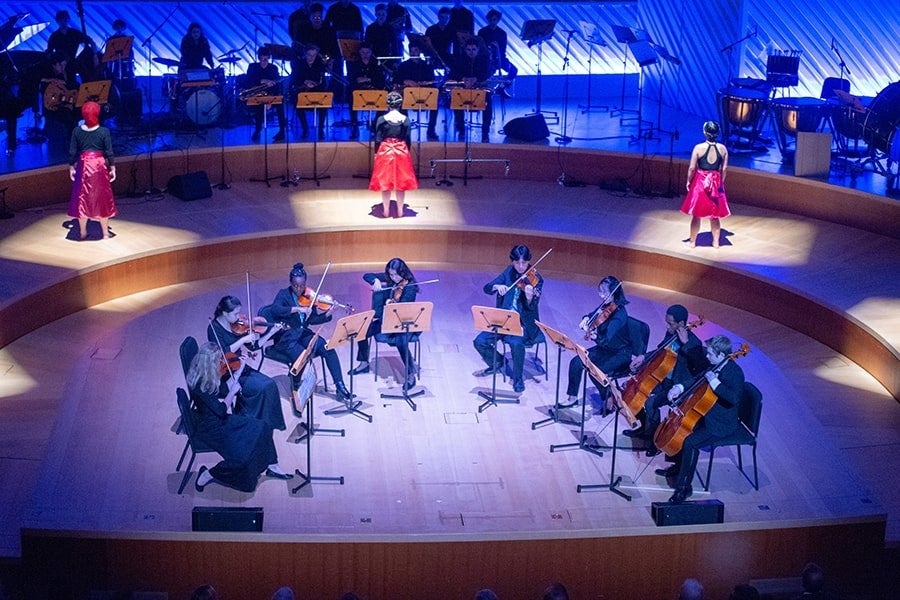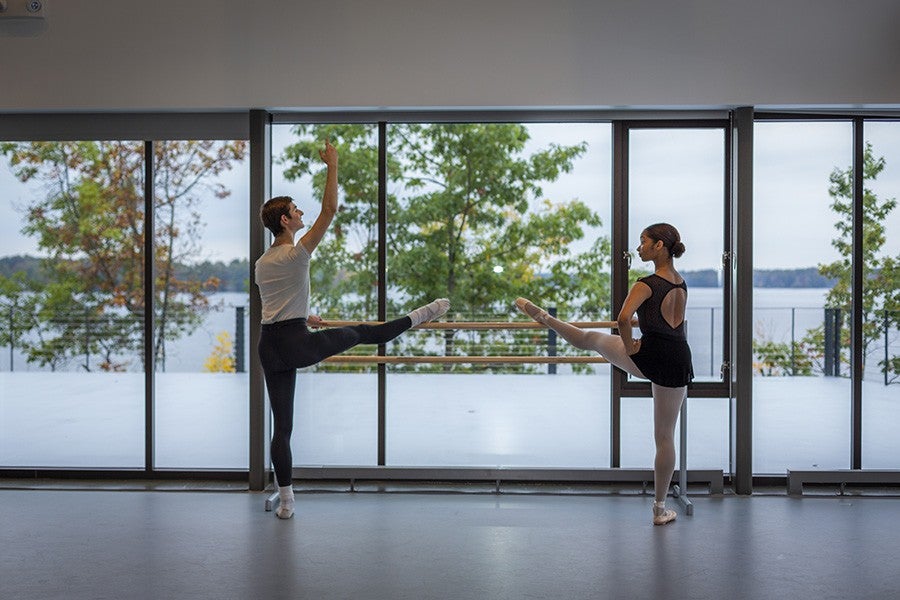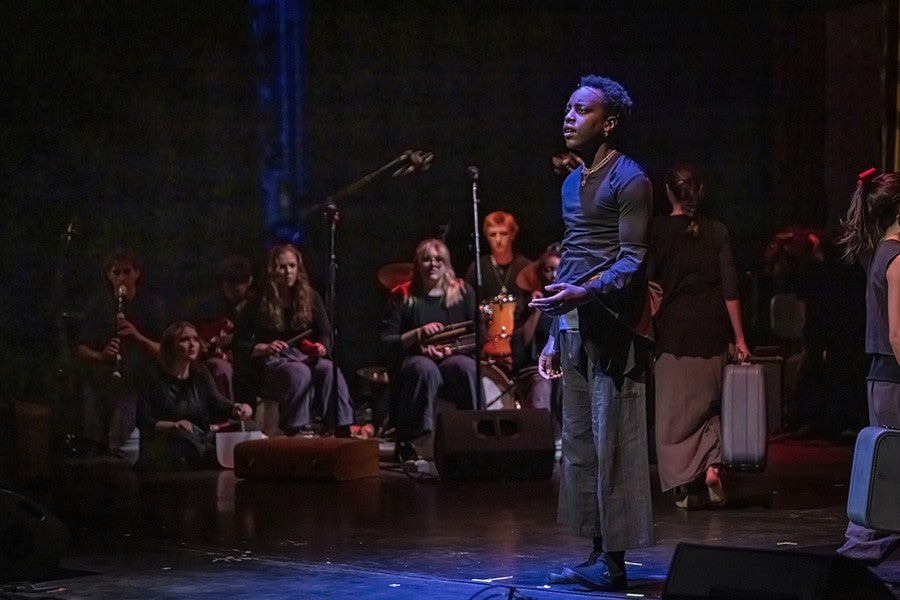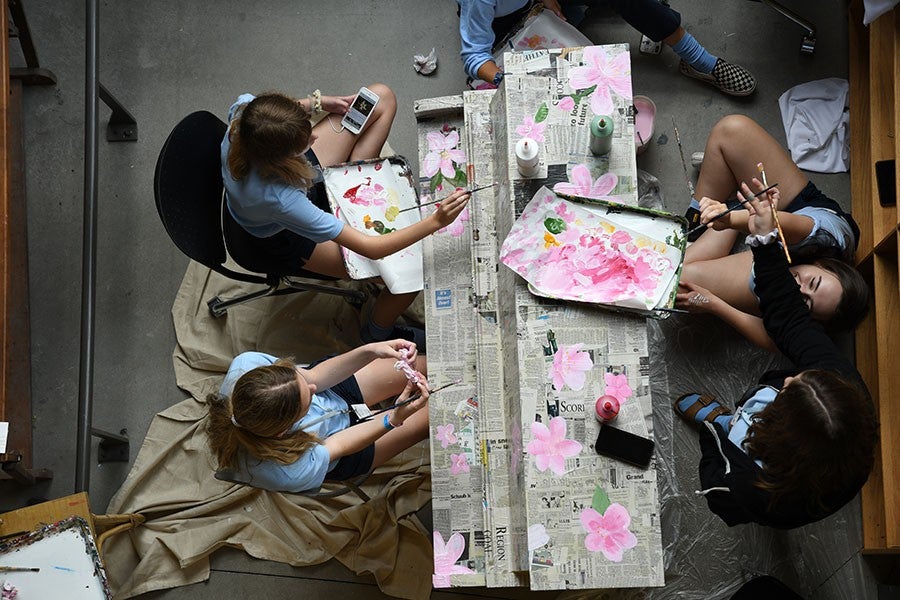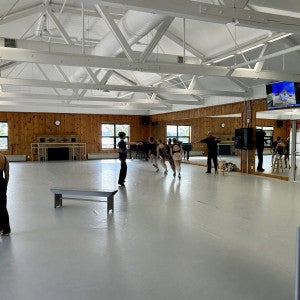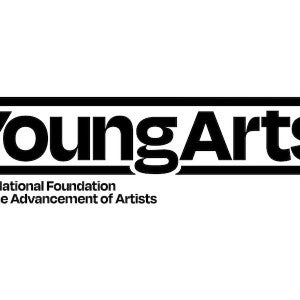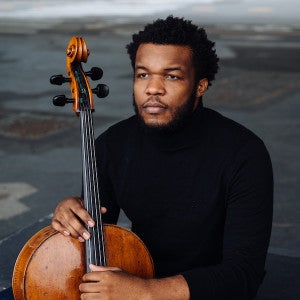What are the benefits of attending a performing arts high school?
Interlochen Arts Academy's admission staff, faculty, and students share the top six reasons performing arts high schools prepare students for college and beyond.
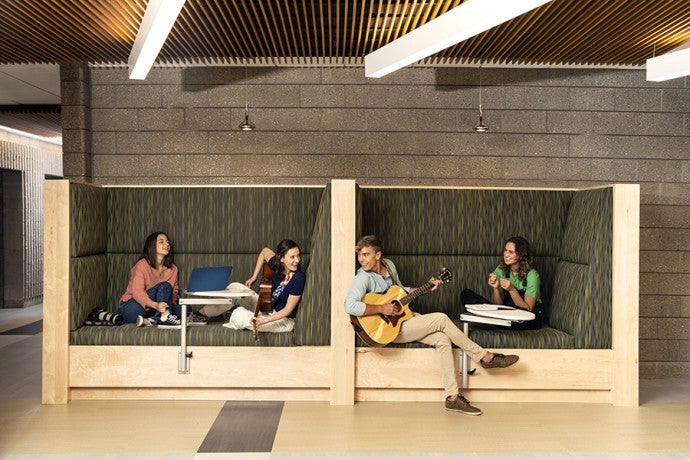
High schools for the performing arts provide students with tools and skill sets that will carry them through college and beyond, including learning to manage multiple projects, advocating for access to more opportunities, developing independence, and taking on active roles in society. These skills can be transformative to a student's future. Here are a few of the benefits of attending a performing arts high school like Interlochen Arts Academy.
Balancing academics with a major area of study
At a performing arts high school, students select an artistic "major" such as music, dance, or theatre and spend much of their time honing their skills in their chosen discipline. However, students must also complete their high school graduation requirements in academic subjects such as social studies, English, mathematics, and science. This unique balance of arts and academics prepares students well for the challenge of juggling artistic training with other responsibilities–which is especially useful for those planning to attend a liberal arts college.
Academic teachers at performing arts high schools often connect their subject with students' artistic work and challenge them to think deeper and more critically. Students will also learn skills to manage their time so they can achieve academic goals as well as artistic ones.
Accessing opportunities
Performing arts schools offer opportunities that students may not find elsewhere, such as tours, guest artist visits, mock auditions, and advanced classes in their chosen artistic discipline. These schools often partner with other arts organizations, enabling students to learn from professional artists and perform for wider audiences. Frequent performances at school and beyond give students valuable experience in performing.
"Recently, we went to play a concert for the inaugural season of the newly constructed David Geffen Hall with the New York Philharmonic. I'm one of the only high schoolers who can say they've had this type of experience," says Ari Han, a violin student at Interlochen. "Being able to meet and collaborate with the celebrated composers that wrote our program was so amazing and the week we spent in New York gave me some incredible memories I made with my friends and many others."
Exceeding college-level and professional standards
Students who attend performing arts schools are often better prepared for auditions at top institutions. On average, 9 out of 10 Interlochen students place in their top-three college or conservatory choices, and are awarded scholarships totaling five times the national average.
Through their experiences, performing arts students improve their work ethic and develop a strong level of professionalism.
"We work closely with our students both academically and artistically based on their individual trajectory," says Chad Gapinski, director of academic and college counseling at Interlochen Arts Academy. "We also collaborate with arts faculty to ensure a unified approach with our students' post-secondary plans. Having access to academic and college counselors focused on the arts helps set students up for success beyond high school."
Collaborating with peers
Collaboration between art forms is crucial for artistic development, as it helps students consider other perspectives, discover other artistic disciplines, and grow as performers. Collaborative experiences elevate students' work and prepare them for dynamic careers.
"Being here, the idea and concept of community is so important that we're always seeking ways to expand our art and work with other people," says Han. "Producers will have different musicians on their track, film students will have theatre students act for their films, the musicians can accompany the dancers, and so on and so forth. Being surrounded by your peers every day just opens up the possibility of collaboration at any time and the facilities and tools we have at our disposal just encourages our work with each other even more."
Transitioning to independent living
Performing arts boarding schools provide students a smoother transition to a college life more so than traditional or public schools. They will still have the new experience of being away from home and living without parents and family; however, boarding schools offer a level of supervision and social-emotional learning opportunities that colleges do not. In this safe environment, students learn both the freedoms and the responsibilities that come with independence.
"A boarding school experience–regardless if it's for the performing arts–is an excellent way for high school students to prepare for life away from home," says Interlochen Arts Academy Vice Provost Megan Walton. "We teach students how to manage their schedules; how to balance artistic, residential, and social responsibilities; and how to make choices that will set them up for success—like getting to bed at a decent hour."
Developing citizen artistry
Inspiring students to use their artistic skills to contribute to society is a key aspect of any performing arts curriculum. Young artists will come to understand their cultural impact—whether they want to enact social change or get involved in performing arts education in their community. By practicing citizen artistry, students will build self-confidence while enriching the lives of others.
"Community is a core value of any citizen artist," says Interlochen Arts Academy Provost Camille Colatosti. "We ask our students to take an active role in building a healthy community here, laying the foundation for a lifetime of rewarding and purposeful engagement."
Dive deeper into Interlochen Arts Academy with a free digital viewbook
